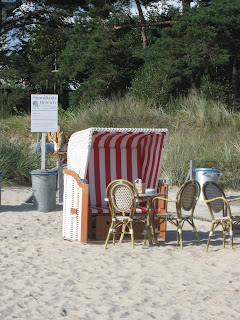A friend and I spent a lot of time on various trains for our adventures during a Spring Break visit. It was an easy way to travel and relatively inexpensive. Since there were many hours spent on they train we had to find ways to pass the time. Here are just a few ideas.
*Sleep. We were up early and spent most of our time on the move so the train was a chance to catch up.
*Card games. We played a few hands of Rummy, but a lot more hands of Speed.
*"Pass the Pig". This was a fun game that my friend brought. Two plastic pigs were "rolled" and points earned depending on how they landed.
*Read. We both love to read so this was a chance to finish that good book, or in my case, listen to an audiobook.
*Listen to music. We both had our iPods and listened to music as we watched the scenery go by.
*Have a snack. On a train you can bring your own food or drink and this was a time to have a quick snack before we arrived at our destination.
*Sit back, relax, and chat with a good friend.
Any other suggestions?
Originally posted on my private blog.
*Sleep. We were up early and spent most of our time on the move so the train was a chance to catch up.
*Card games. We played a few hands of Rummy, but a lot more hands of Speed.
*"Pass the Pig". This was a fun game that my friend brought. Two plastic pigs were "rolled" and points earned depending on how they landed.
*Read. We both love to read so this was a chance to finish that good book, or in my case, listen to an audiobook.
*Listen to music. We both had our iPods and listened to music as we watched the scenery go by.
*Have a snack. On a train you can bring your own food or drink and this was a time to have a quick snack before we arrived at our destination.
*Sit back, relax, and chat with a good friend.
Any other suggestions?
Originally posted on my private blog.








































